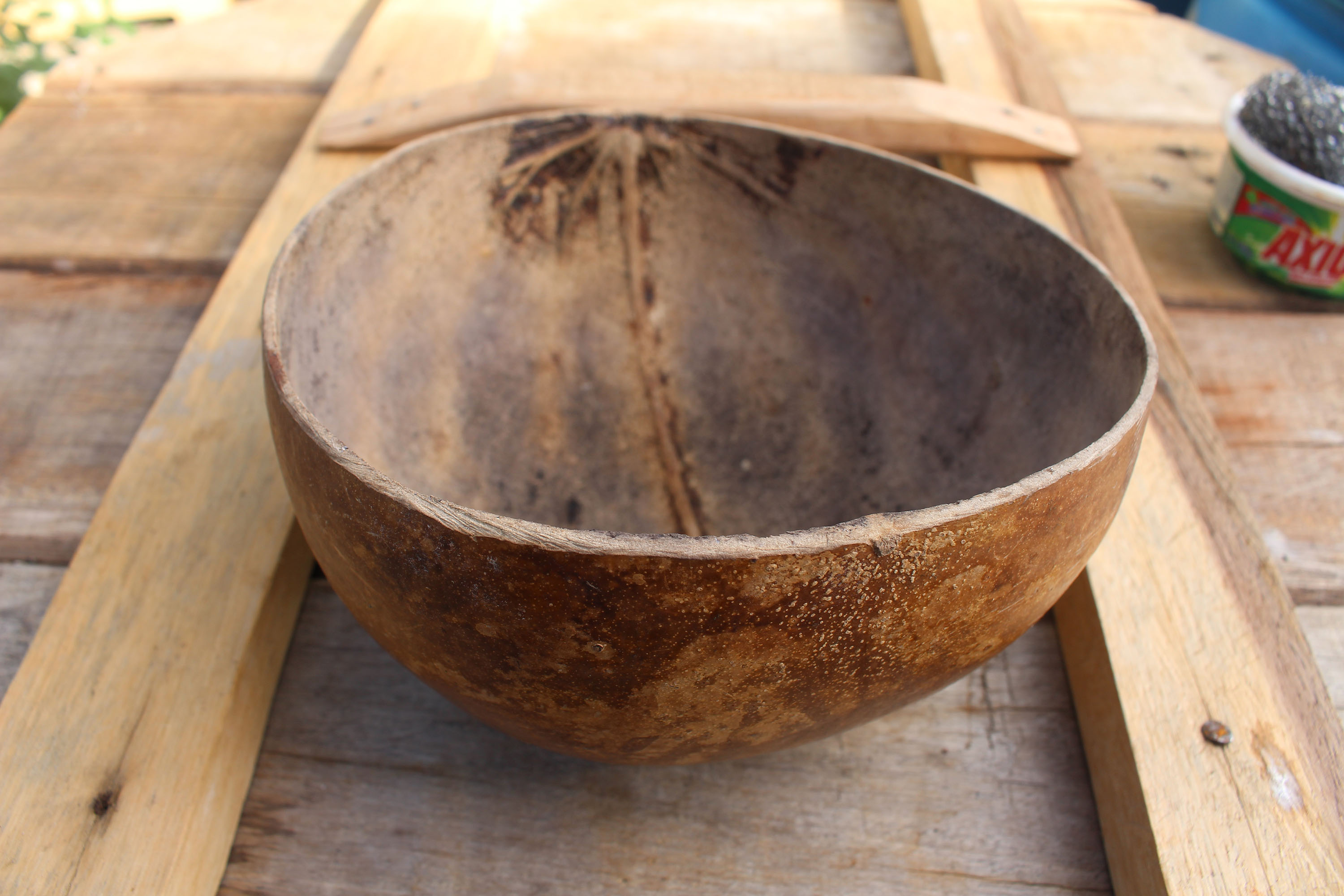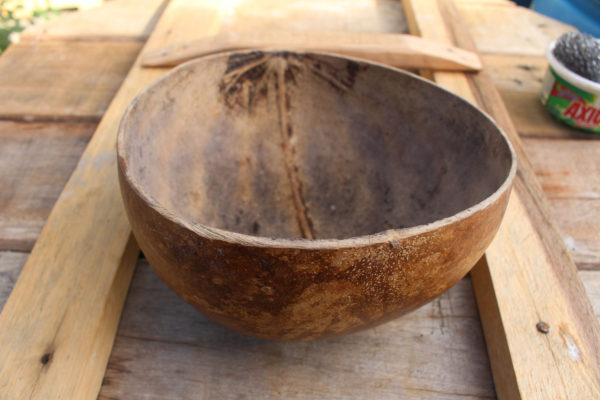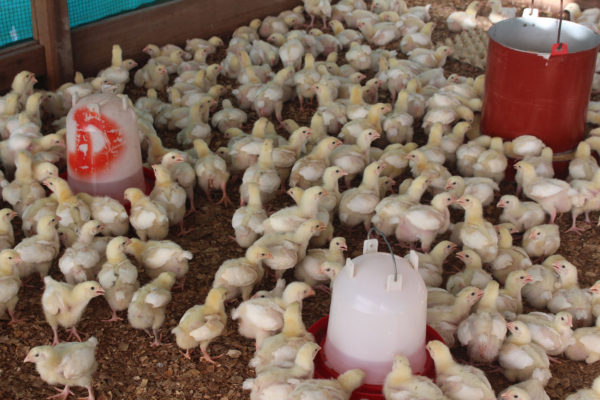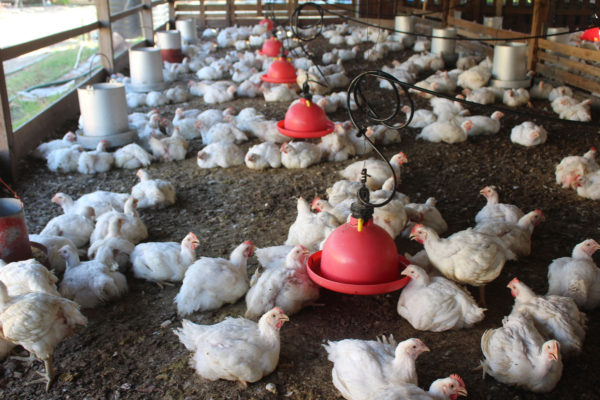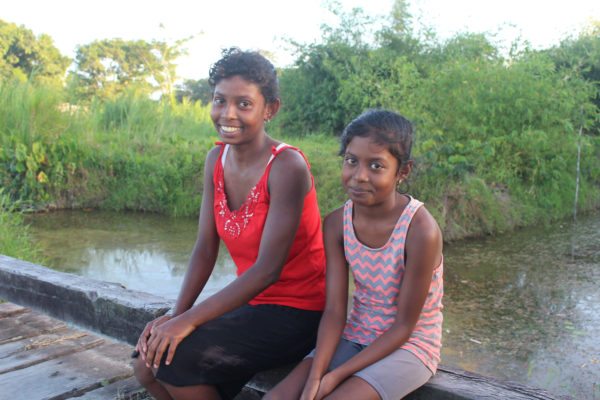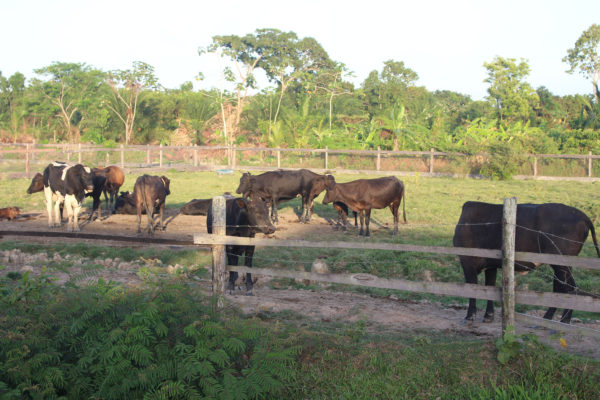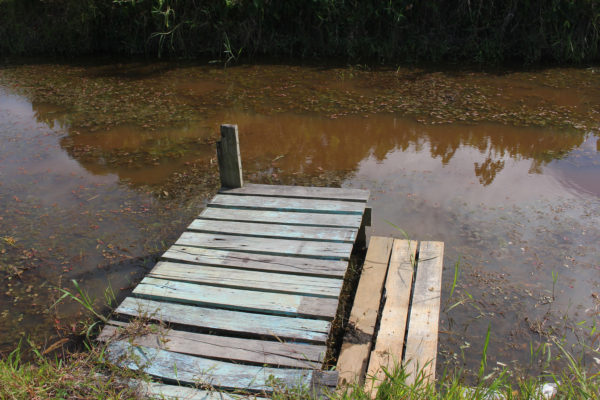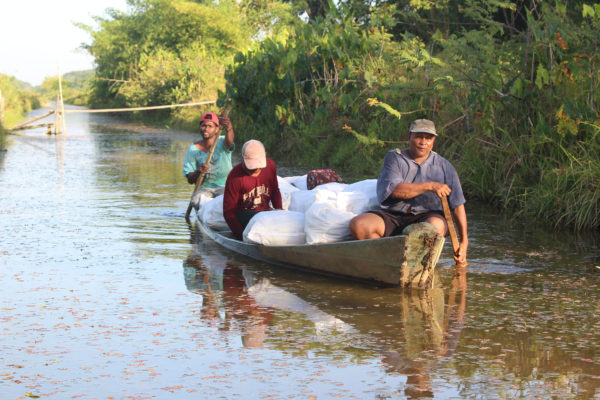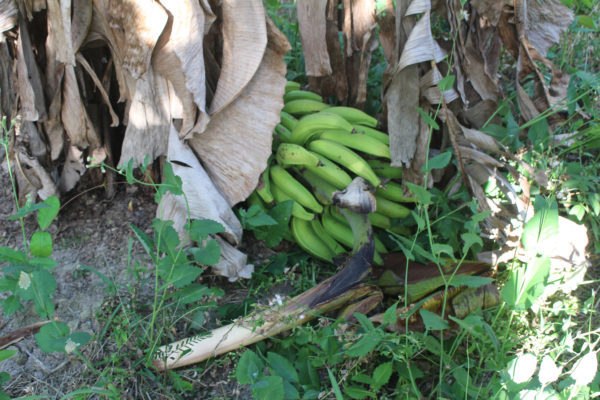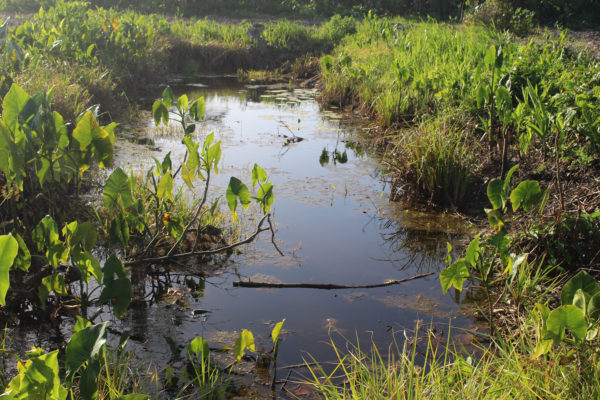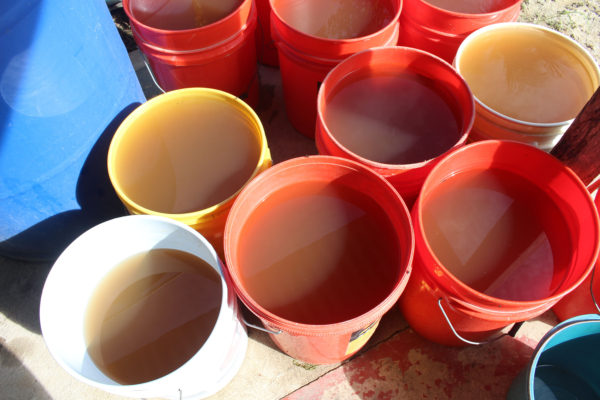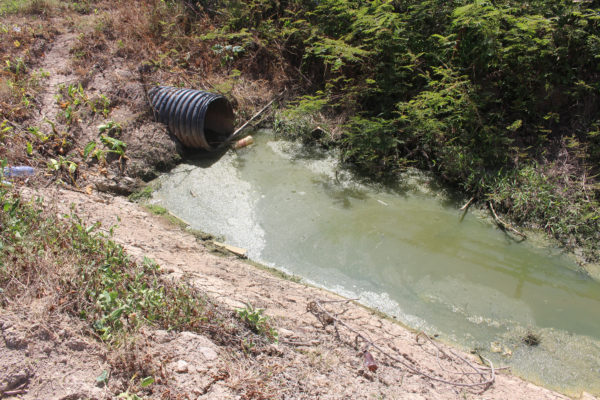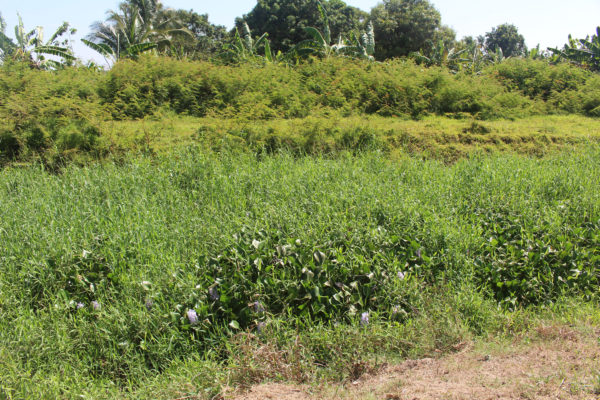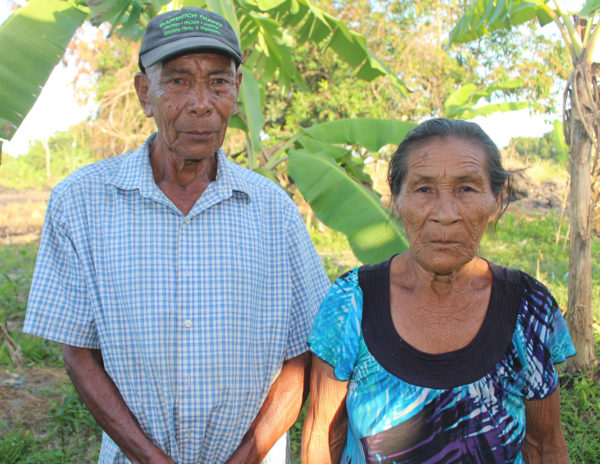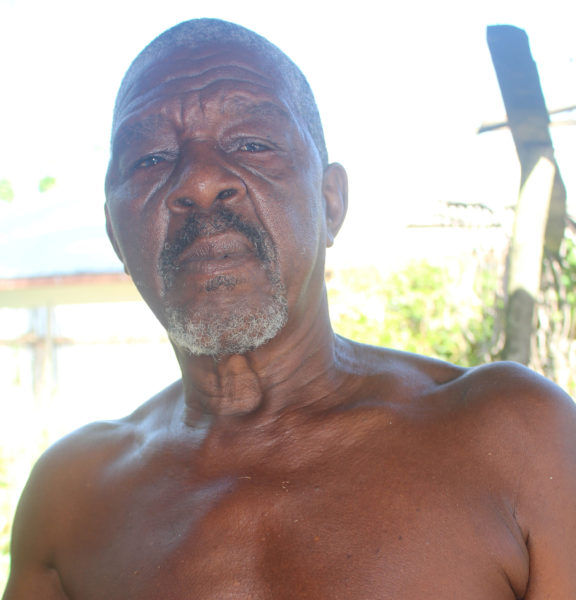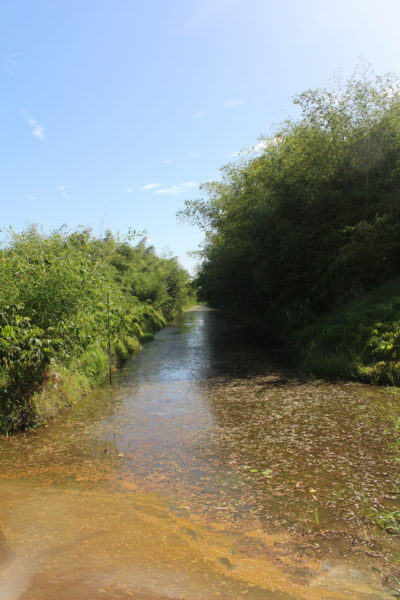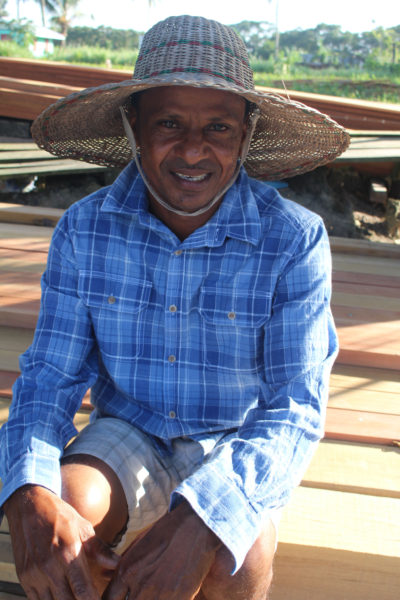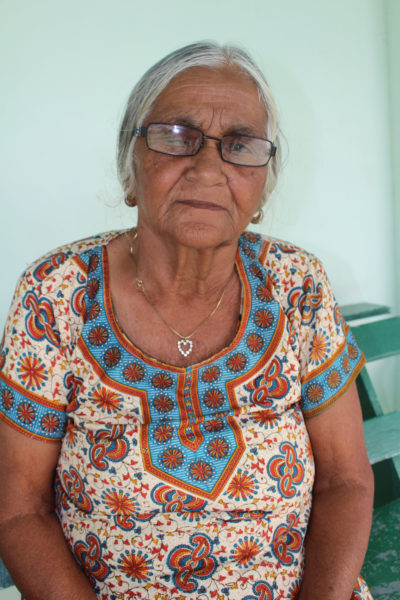Look Out is a tiny village on the East Bank Essequibo, with no more than 200 residents, skirted by Grove and Naamryck. Most of the villagers are farmers. Some plant ground provisions, cash crops and fruits and/or rear poultry animals, and pigs.
Getting to Look Out isn’t difficult; once you’ve arrived at Parika, there are cars parked at a junction waiting to take persons in to Look Out and other villages. A five-minute drive along the road brings one to a village with few houses.
Vernon Caesar has been living in Look Out for more than three decades and is one of the very first persons to take up land there. He moved from Salem, situated two villages away. Caesar is a vegetable and poultry farmer.
“Look Out was a special pilot project that was given in the Burnham government for persons to grow their own food and rear their own meat. The project started out with 24 farmers. Subsequently things didn’t turn out right, because after the death of Burnham, people had new ideas. I chose to mind pigs and plant cash crops. Sometimes I sell the meat to the market or sometimes I sell it out wholesale. I plant plantain, cassava; the cash crops I plant are for home use,” Caesar said.
“The weather got we bad man and these days nobody seems to be paying much attention to farmers especially in the ground provision world. Cassava doesn’t make a nice price and fertilizers gone high. Sometimes is $5,000 a bag for fertilizers. Moreover, agriculture is not what it used to be. Yesteryear, they had a policy that you produce more or you perish and we used to like run-race to produce. We used to get an incentive from the government of $25 in those days per acre. That would be equivalent to like $10,000 now.
“When the new administration came on, they were focusing more on rice because the rice can preserve and you can keep it and you can bargain with outside market, but the ground provision didn’t really had that option and now it is worse. Most people who plant plantain and cassava, the price is down and you can’t keep it, you don’t have storage facility.”
Caesar added that the last time he had a good price for his provision was about five or six years ago. Cassava used to be $25 or $30 a pound. Now, Caesar sometimes get as low as $15 for a pound cassava. According to the farmer, it is the middleman who purchases the farmers’ produce and resells it, who is making a profit, adding that farmers are not paid for their hard work.
He recalled, “Yesteryear, the government then used to look after the farmers’ interest. You could have carried your load to them and they take it off at a price at about five or six cents a pound and the prices kept going up then because a lot of things were banned in those days and we had to eat our own food. Because of that we learnt to do things on our own. We learnt to process our own food; we made like carambola drink and fruits and the dollar used to come around. Things are far different now. I ain’t complaining; as time changes, so do men cause everybody running now to go to the Big Apple to get ah better money.”
Caesar recalled moving to Look Out with his children and wife. Two of his 13 children are now deceased. His children went to the various schools around Parika while one attended the Richard Ishmael School in Georgetown. But transportation for them never posed a problem since they were catered for by the government-owned Tata buses, which had arrived from India. He paid a small fee for his children to travel every day to school. Pensioners, he said, travelled free, whether it was a short drop or a drop as far as Rosignol, West Coast Berbice or Springlands or Corriverton on the Corentyne.
Living in Look Out, Caesar said, has its advantages, like being in a peaceful, crime-free area, unless somebody decides to steal a chicken or a duck. Those petty crimes he said were mainly committed by passersby and not people from within the village. He added that neighbours hardly entertain a row with each other because they do not have the time for that sort of nonsense with most them being occupied on their farms or are working outside of the village either at private or public firms.
“I’d like for the government to improve the agricultural sector which would give the farmers a better break in life,” he advocated.
The 77-year-old man sometimes sells his produce at the Parika Market on Sundays.
Across a bridge over a stagnant canal farther down the street, the World Beyond Georgetown caught up with Savitri Husman who was cooking hassa curry at the time.
“I was born in a place call Marushi in the Essequibo River. It was on the mainland. I’m from the Dookie family. Our [extended] family has 20 persons, but my [immediate family] had three girls, seven boys and my parents,” she said.
“Just we had live at Marushi. My father plant farm and hunt and catch fish for our livelihood. He hunt labba, deer, accouri and wild cow. In those days my father used to sell the meat for 24 cents a pound at the Parika Market. He planted ground provision, greens and corn. On weekends he used to collect all of us children and we used to come out with we bed and a small thing like a fireside call cumbose. Cumbose was a tinning bucket that we used to put firewood in and cook on it. We used to be at Parika Stelling sometimes three, four days. When we get big we used to help we father cut timber to send to the Guyana Match Factory.”
She recalled the family making tea from a fruit they called ‘Toru’ which they drank to wash down the foo foo they had for their Sunday morning breakfast. Later that Sunday, when her father returned home with fish they had boiled fish with foo foo again.
Husman said that her father arrived from India when he was nine years old to work on one of the sugar plantations here.
After Husman got married her husband stayed with her in Marushi. Some years later with their six children, they packed up and left the village for good to settle in Look Out. No one lives at Marushi anymore, she said.
Sometime after moving to Look Out, she said, her husband died, leaving her to take care of nine children.
“After coming here, we planted ground provision which we sell to GMC [Guyana Marketing Corporation] then. Some of the first set of families to live were the Semples, the Caesars and the Husmans. The Caesars and the Husmans were the two hardest working families in the village. All day they worked,” she recalled.
The 77-year-old woman said the now stagnant canal was once fresh, black, flowing water where her children swam and caught fish.
Look Out has now become a place where the farmers are looking out for cleaner canals and better roads.
At the back of her house, Husman pointed out several buckets filled with brown water from the canal. She lamented the state of the canal, noting that she had to fill her buckets and wait for the water to settle so she can wash her mats and the concrete. Water for drinking and cooking is purchased. This is so because she does not have potable water, owing to the Guyana Water Inc (GWI) cutting off her supply. Husman explained that before they did that the water had already stopped coming and she had expected them to fix it. Instead they cut it off, before giving her a bill.
She added that she went in to the office and was sent home by the supervisor who promised to pay her a visit and have the problem rectified. It has been a year. “I’m appealing to GWI to give me back my water. I’m a pensioner who has to pay light, water and phone bills and now I get a huge bill for water I wasn’t even getting. When you got to pay all these bills, how you eating?” she asked.
Her grandson, who had stepped in while we were speaking, said he too was bothered by the canal. He said there were five other canals that carry the same length of two miles which drain into the main canal. The canal, he said, was cleaned only two weeks ago and already the foliage has grown back. The man argued that the job was not done properly and that the canal needed to be dug instead of just clearing away the weeds at the top.
David Roopnauth, a chicken farmer, has been living in Look Out for the past five years; he moved from Hog Island. He said he left the island to be closer to adequate schooling for his children. The chicken farmer also plants plantain, banana, watermelon and coconut on a small scale.
“The biggest problem right now is the water and the road,” Roopnauth said. He only got access to electricity in August of last year and is now awaiting potable water.
Roopnauth’s wife lamented that doing laundry is nearly impossible and she refuses to wash her “good clothes” with the canal water. Fetching water from the canal has also led to her having abdominal pains.
Rain takes care of getting water for their chickens but makes it almost impossible for them to get out of the muddy street with their vehicle therefore forcing them to use their boat to get in and out which poses another problem when they have to bring in feed for the chickens. The chickens, numbering almost 2,000, use up 25 bags of feed every week.
Currently there is no rain and the chickens are suffering. Because of the heat, the Roopnauths are losing their chickens. The farmer placed his losses recently at almost 50 chickens at one time.
Meanwhile, Roopnauth has another situation to deal with. His plantain and banana suckers are afflicted with a disease he calls “dry sick”. This, he said, sees the leaves drying up and falling off. In some instances, the plantain and banana bunches were small. He took the opportunity to show me around his farm. Because of the disease, one bunch of plantains lay on the ground beside the tree having fallen off because the tree couldn’t support it.
But even with all this, they said, they like living in Look Out because they’re surrounded by people who lookout for each other.
Continuing on, I saw three men paddling through the canal with their produce. One of them said he was upset at the condition of the canal especially since it had been recently cleaned, adding that he could not use his engine to move faster because of the weeds in the canal.
Sharon Thomas was weeding the parapet when we met. She moved from Vreed-en-Hoop to Look Out four years ago, because she wanted to farm. Although she has adjusted to a place with no potable water or electricity, comforts she had in Vreed-en-Hoop, things are still hard for her and her family.
Her husband plants plantain and banana and they rear pigs. He usually sells wholesale to other farmers.
Because of the lack of electricity, one of her two daughters lives with an aunt in Berbice where she goes to school.
Thomas said that the persons cleaning the canals need to do a better job.
Seventy-seven-year-old Simon Perez left his home in Mabaruma in the North West District 15 years ago to live at Look Out.
“The water situation is really terrible. We have to use the rain water,” he said.
“All this used to be big, big trees that I cut down,” he pointed out around his land. He added that he plants cash crops, plantain and bananas, but because he isn’t getting a market he plants for himself and family now.
“We need help with the water and road,” he noted.
On our way back out, a woman sat with her two children on the bridge. She gets potable water, which she says comes red and wishes this to be rectified.
